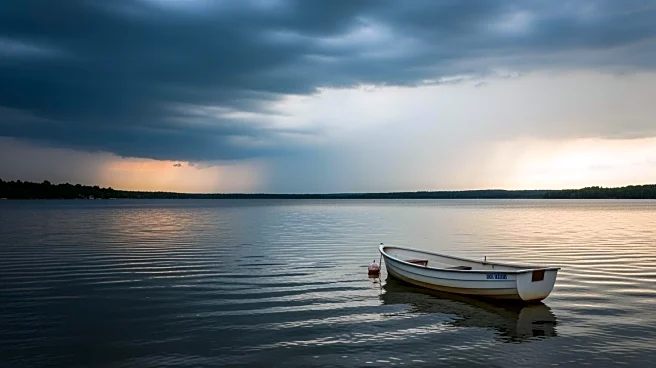What's Happening?
Several families in Texas have filed lawsuits against Camp Mystic, alleging negligence after a tragic flash flood resulted in the deaths of over two dozen young campers on July 4. The families claim that the camp failed to implement adequate safety measures
to protect the children during the severe weather event. The incident has raised questions about the camp's emergency preparedness and response protocols, as the families seek justice for the loss of their loved ones.
Why It's Important?
The lawsuits highlight the critical need for camps and similar institutions to have robust safety and emergency response plans, especially in areas prone to severe weather. This case could set a precedent for how camps across the U.S. manage safety protocols and respond to natural disasters. The outcome may influence public policy regarding safety standards in recreational facilities, potentially leading to stricter regulations and oversight. Families affected by the tragedy are seeking accountability, which could lead to significant financial and reputational consequences for Camp Mystic.
What's Next?
The legal proceedings will likely involve detailed investigations into the camp's safety measures and response to the flooding. Stakeholders, including camp operators and regulatory bodies, may face increased scrutiny and pressure to enhance safety protocols. The case could prompt legislative action to ensure better protection for children in camps nationwide. As the lawsuits progress, there may be calls for broader industry reforms to prevent similar tragedies in the future.
Beyond the Headlines
This case underscores the ethical responsibility of camps to prioritize the safety and well-being of their attendees. It raises questions about the balance between recreational activities and safety, especially in environments susceptible to natural disasters. The tragedy may lead to a cultural shift in how camps and outdoor facilities approach risk management and emergency preparedness.














